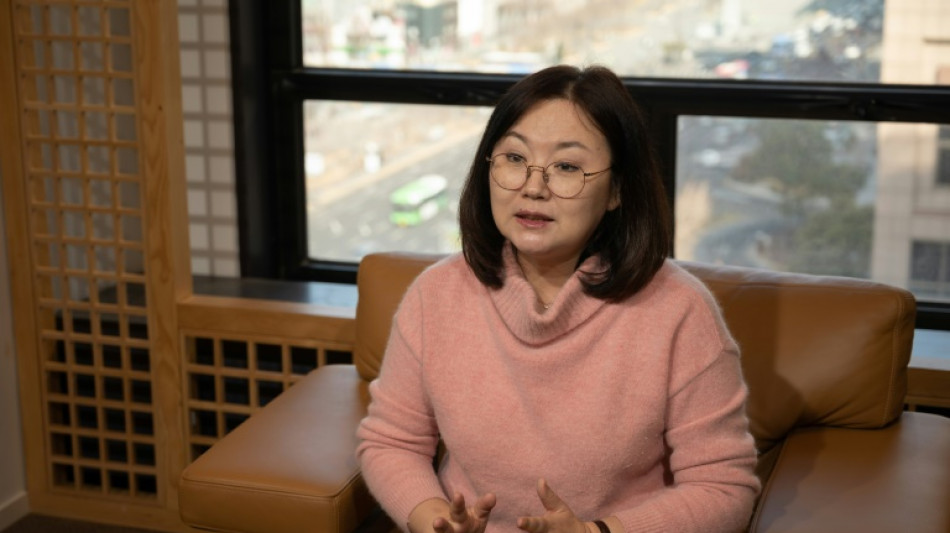
-
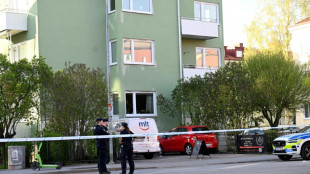 Sweden shooting kills three: police
Sweden shooting kills three: police
-
Real Madrid's Rudiger, Mendy out injured until end of season
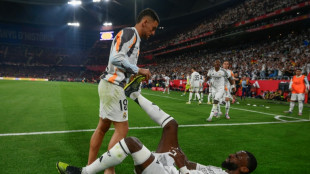
-
 Dubois' trainer accuses Usyk of 'conning boxing world'
Dubois' trainer accuses Usyk of 'conning boxing world'
-
Femke Bol targets fast return after draining 2024

-
 Asterix, Obelix and Netflix: US streamer embraces Gallic heroes
Asterix, Obelix and Netflix: US streamer embraces Gallic heroes
-
Watson wins Tour de Romandie prologue, Evenepoel eighth
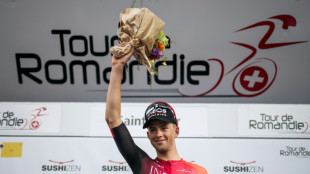
-
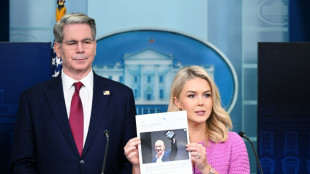 Amazon says never decided to show tariff costs, after White House backlash
Amazon says never decided to show tariff costs, after White House backlash
-
India gives army 'operational freedom' to respond to Kashmir attack
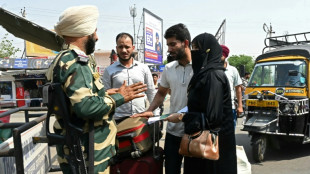
-
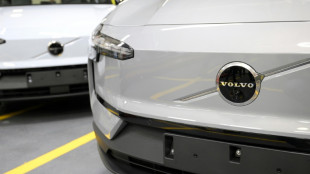 Stocks advance as investors weigh earnings, car tariff hopes
Stocks advance as investors weigh earnings, car tariff hopes
-
Canadian firm makes first bid for international seabed mining license
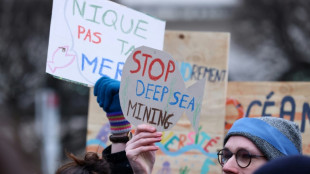
-
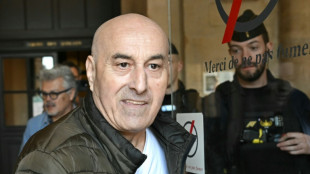 Kardashian robbery suspect says heist was one 'too many'
Kardashian robbery suspect says heist was one 'too many'
-
'Chilled' Swiatek scrapes into Madrid Open last eight

-
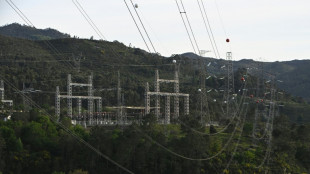 Interconnectivity: the cornerstone of the European electricity network
Interconnectivity: the cornerstone of the European electricity network
-
France accuses Russian military intelligence of cyberattacks
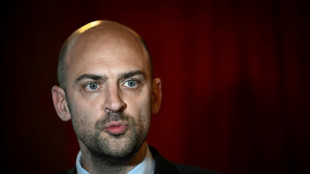
-
 Multiple challenges await Canada's Carney
Multiple challenges await Canada's Carney
-
US consumer confidence hits lowest level since onset of pandemic
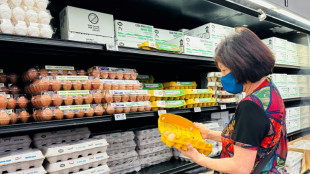
-
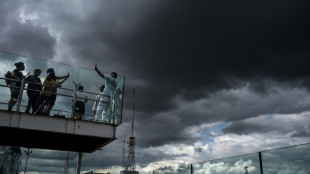 How climate change turned Sao Paulo's drizzle into a storm
How climate change turned Sao Paulo's drizzle into a storm
-
Video game rides conclave excitement with cardinal fantasy team
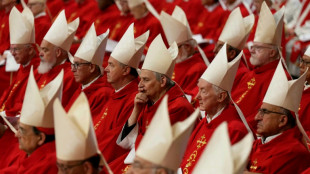
-
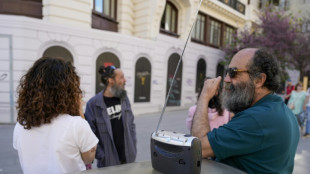 Candles and radios in demand in Spain as blackout lessons sink in
Candles and radios in demand in Spain as blackout lessons sink in
-
Boca Juniors sack coach Gago ahead of Club World Cup
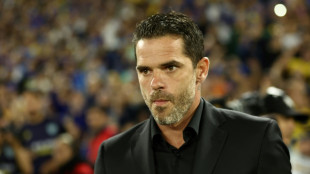
-
 Trump celebrates tumultuous 100 days in office as support slips
Trump celebrates tumultuous 100 days in office as support slips
-
Forest face 'biggest games of careers' in Champions League chase: Nuno
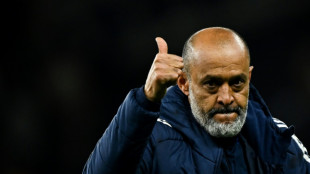
-
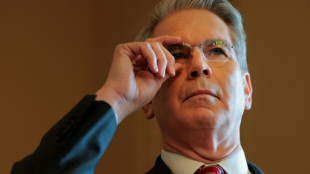 Stocks waver as investors weigh earnings, car tariff hopes
Stocks waver as investors weigh earnings, car tariff hopes
-
US climate assessment in doubt as Trump dismisses authors

-
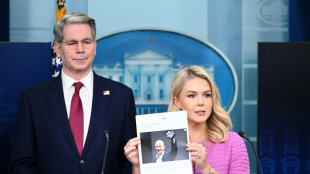 W. House slams Amazon over 'hostile' plan to display tariff effect on prices
W. House slams Amazon over 'hostile' plan to display tariff effect on prices
-
What we know ahead of conclave to elect new pope
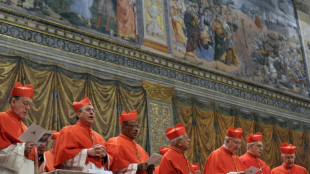
-
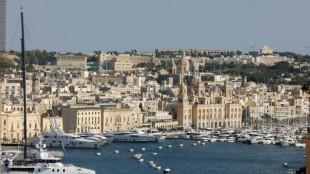 EU top court rules 'golden passport' schemes are illegal
EU top court rules 'golden passport' schemes are illegal
-
Mounds of waste dumped near Athens's main river: NGO
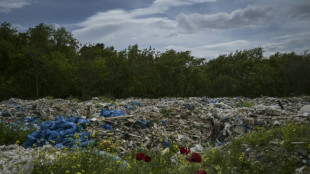
-
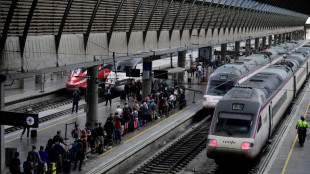 Spain starts probing causes of massive blackout
Spain starts probing causes of massive blackout
-
France targets cheap Chinese goods with fee on packages

-
 Amnesty accuses Israel of 'live-streamed genocide' in Gaza
Amnesty accuses Israel of 'live-streamed genocide' in Gaza
-
Japan, Philippines leaders vow to deepen security ties
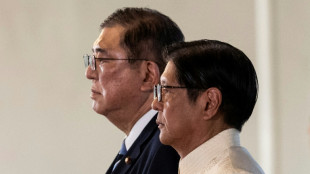
-
 AstraZeneca moves some production to US amid tariff threat
AstraZeneca moves some production to US amid tariff threat
-
Shadman's ton gives Bangladesh lead in 2nd Zimbabwe Test

-
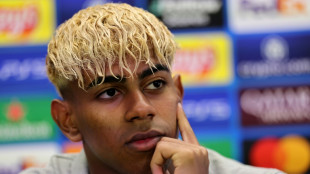 Barca's Yamal: I admire Messi but don't compare myself to him
Barca's Yamal: I admire Messi but don't compare myself to him
-
Pfizer profits dip on lower Paxlovid sales

-
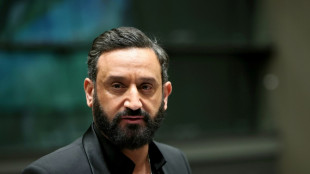 French right-wing TV host fans talk of presidential bid
French right-wing TV host fans talk of presidential bid
-
Two men in court charged with 'moronic' felling of famed UK tree
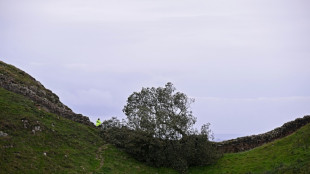
-
 Amnesty accuses Israel of 'live-streamed genocide' against Gazans
Amnesty accuses Israel of 'live-streamed genocide' against Gazans
-
Spotify posts record profit in first quarter

-
 Sciver-Brunt named as England women's cricket captain
Sciver-Brunt named as England women's cricket captain
-
GM profits top estimates, but automaker reviewing outlook due to tariffs
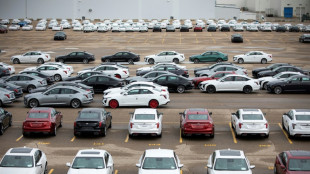
-
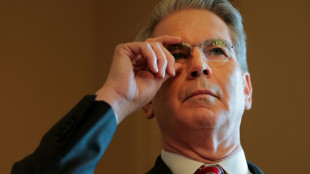 Stock markets edge up as Trump softens tariff pain for auto firms
Stock markets edge up as Trump softens tariff pain for auto firms
-
Pricier trainers? Adidas warns on US tariff impact

-
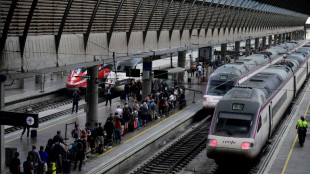 Spain, Portugal rule out cyberattack for massive blackout
Spain, Portugal rule out cyberattack for massive blackout
-
Suryavanshi, 14, dubbed India's next superstar after shattering records

-
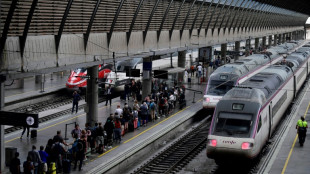 Power back in Spain, Portugal after massive blackout
Power back in Spain, Portugal after massive blackout
-
Pakistan says it shot down Indian drone along Kashmir border
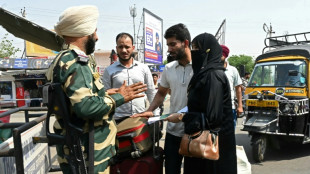
-
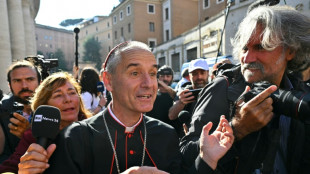 Cardinals run the media gauntlet ahead of conclave
Cardinals run the media gauntlet ahead of conclave
-
BP profit drops 70% amid pivot back to oil and gas


High-level defection: why N. Korean diplomatic family chose freedom
Born into an elite North Korean family with ties to the ruling dynasty, Oh Hye Son grew up believing she was "special" -- but then she tasted freedom overseas and decided to defect.
Most of the tens of thousands of North Koreans who have escaped repression and poverty at home make an arduous, high-risk journey across the country's land border with China, where they face arrest and possible deportation.
Oh's family's defection was less dangerous but equally as wrenching: she convinced her husband Thae Yong Ho, then deputy ambassador at North Korea's London embassy, to give up their privileged place in the Pyongyang regime for the sake of their children.
"I wanted to never return to North Korea and questioned why North Koreans had to live such a hard life," she told AFP in an interview in Seoul, where she now lives.
Years of postings across Europe -- in Denmark, Sweden, and Britain -- exposed the family to a different life, she said, adding that when she first arrived in London she thought: "If there is paradise, this must be it".
Oh, who recently published a Korean-language memoir, was once part of Pyongyang aristocracy -- a descendent of a famed North Korean general who fought alongside leader Kim Il Sung against the Japanese in the 1930s.
But despite this impeccable pedigree, she still "lived in fear of power", she said.
"No one except the Kim family had privileges, and as my children learned about freedom and democracy when they lived abroad, I realised there was no future for them in North Korea," she added.
- NHS love -
Oh's eldest son Thae Juhyok had chronic health problems including nephrotic syndrome, a condition which can cause life-threatening kidney problems if not treated.
Getting that treatment was near impossible in Pyongyang's crumbling health system -- one of the world's worst -- where doctors had to be bribed to do anything and crucial medicines were lacking.
Oh said it was eye-opening when the family first arrived in London in 2004 and became eligible for the National Health Service.
Her son was soon able to get free treatment at one of the best medical facilities in the city, she said, adding that her children also went to British schools, where they settled in well.
"The children grew up so bright in England, in a society that respected them," she said.
It was a stark contrast to life in Pyongyang, to which they returned in 2008 after her husband's first London posting ended.
Juhyok attended the Pyongyang Medical University, but instead of studying he was put to work on a construction site hauling cement, Oh said.
North Korea is beset by labour shortages across economic sectors and it is common for the government to order students, even schoolchildren, to do manual labour as a demonstration of loyalty.
If one fails to comply, the government reportedly withholds food rations or imposes taxes, according to a 2022 Trafficking in Persons Report published by the US State Department.
As her overseas-raised children began questioning the corruption and injustice they observed in North Korea, Oh realised it would be impossible for them to fully integrate into Pyongyang society.
"They had completely different values," she said.
"It was then that I began thinking that if I ever had a chance to go overseas again, I will not return."
- Escape -
Oh's chance came when her husband was again posted to London as the deputy ambassador, and she convinced him to defect as she did not want to be "resented by her children in the future".
She had hoped the North Korean regime would collapse after the death of Kim Jong Il, the father and predecessor of current leader Kim Jong Un, and was crushed when his son emerged as the third generation of Kims to rule.
"In North Korea, you existed -- from morning to night -- for the sake of the Kim family," Oh said.
Thae became the first defector to be elected to South Korea's parliament, where he is now a high-profile lawmaker for the conservative People Power Party.
Oh loves her new life in Seoul, but is haunted by thoughts of her mother and siblings left behind in North Korea, which is known to punish defectors' family members.
She can't check in with them: civilian contact is banned between the two Koreas, although some defectors have used intermediaries to smuggle Chinese mobile phones across the border.
Oh has not managed to contact her family, but she once glimpsed her brother-in-law when he was part of an official North Korean delegation that visited Seoul in 2018 during a rare bout of diplomacy.
It gave her hope that her relatives had not been purged by the Kim regime as a result of her family's escape.
"Will they resent me? Will they envy me? Or will they silently cheer for me?" she said, wiping away tears.
M.A.Colin--AMWN